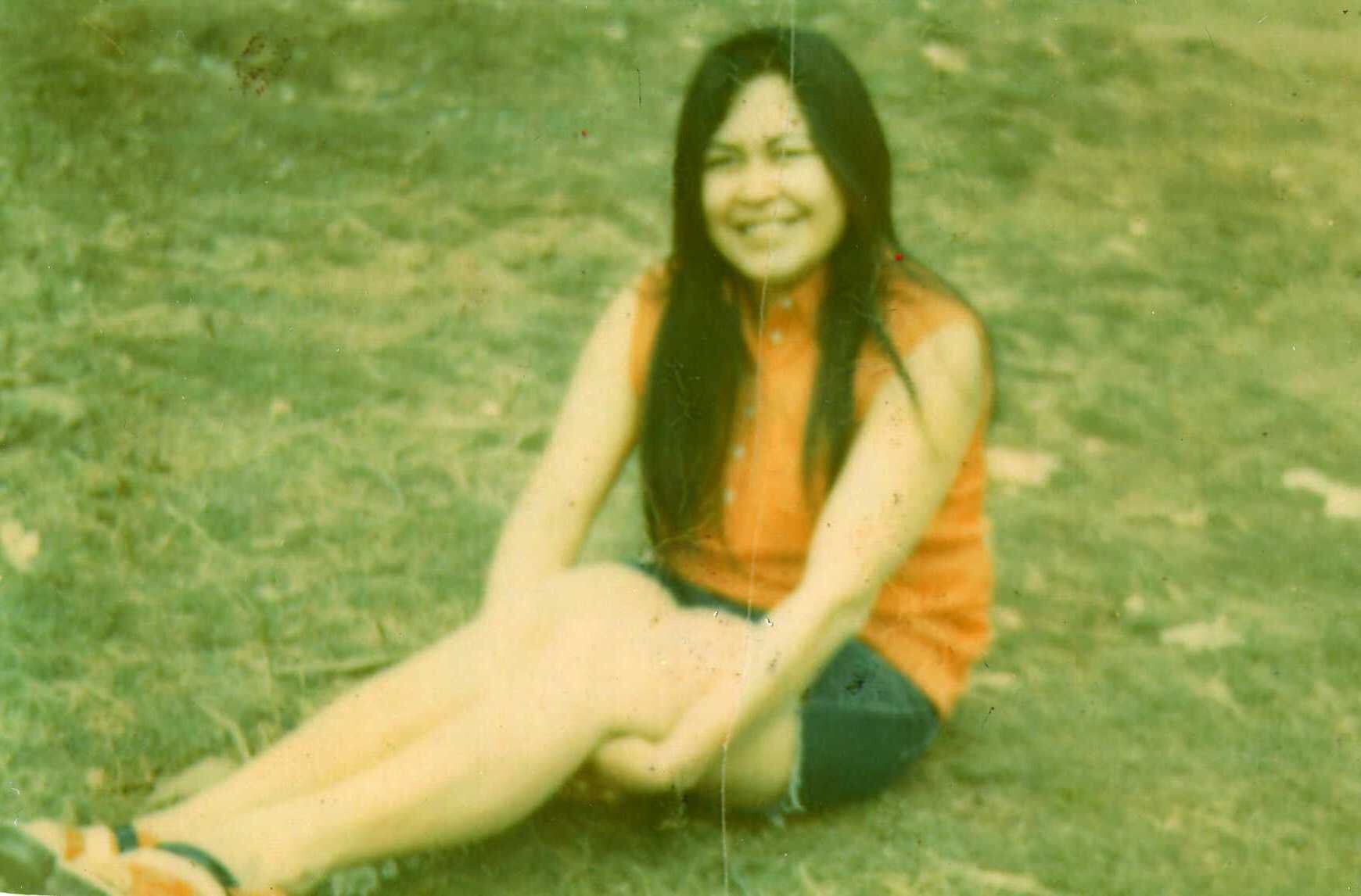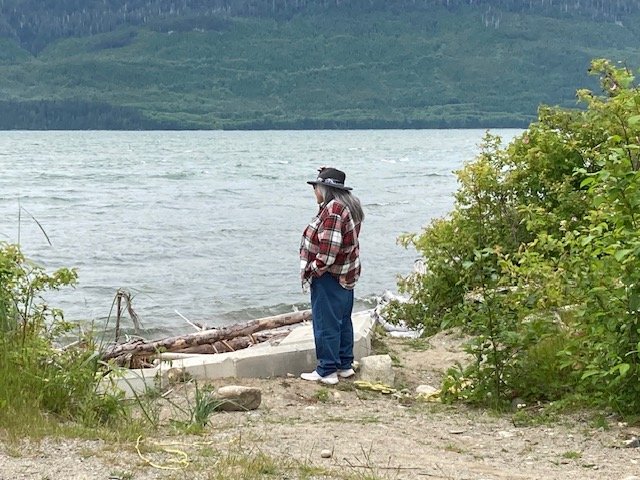

Edōnemā
Carolyn Ann Doody
Edlā
Dihgothe Yāze
Peggy Ann Quock
Estsu taught Edlā how to pray when she was a little girl in Porters landing. They had a difficult life from the beginning.
Some people call Indigenous survivors resilient. Resilience is a word that I cannot embrace. I read once that instead of calling people resilient there needs to be changes made to the systems that are making them vulnerable. Indigenous survivors are nadī’, strong.
Our people have survived a multitude of common atrocities and yet our stories are all unique and different. It is important that we tell our own stories, should we choose to.
Our stories lose authenticity when they are told by outsiders. When our stories are told by outsiders, our stories become blurred by a non-Indigenous point of reference and inaccuracies, assumptions as well as potential judgment are bound to occur.
I listened to the recordings with a grain of salt. I would find myself thinking about my Mom and her life and the stories she has shared with me. I thought about the systems that tried to crush her spirit and I felt anger and sadness about what she, and all of our people, go through.
I thought about her faith, her strength, and her intuition. I thought about how she intuitively knows what to do to heal her soul wounds.
Edlā maintains a consistent and steady practice of prayer, creativity, authenticity and love. I asked her if I could share parts of her story, and she allowed me to record her. She once told me that when we share our stories it might help others.
Edlā’s stories have helped me at many points throughout my life. Her stories are honest, raw and always sprinkled with humour and spicy language.
Edlā is nadī’, she is a survivor. Survivors walk among us and their voices need to be heard. Should they choose to share, their stories are meant to be told from their point of reference, in their own words.
We all have a story, unique, authentic and important. We are all stories.
Edlā maintains a consistent and steady practice of prayer, creativity, authenticity and love.
Me’esdich
I remember
I remember a story Mom told me:
One summer when she was around 5-6 years old she was sent to Miller Bay hospital for TB that was infecting her eye. Her Mom and younger brother Sam were there too.
Her Mom wasn’t allowed to go into the children’s ward, so she would talk to her through the door and her Mom would roll cans of pop and candy bars across the floor to her.
Christmas time she was sent on a train with a nurse to Charles Camsell hospital in Edmonton. There she was put in a dark room with a patch over her eye and she wasn’t allowed to be around people.
She said sometimes at night a nurse would come see her and take her to look at Christmas lights in the hospital. It was the only time she went out of that room. She said maybe that nurse was an angel.
Over time she was sent back to Miller Bay and it was summertime when she finally went home to Telegraph Creek.
She said “I must have been gone a long time because Sam was way older when I got back. I’m not sure how long I was gone. I must have blocked it out I got pretty good at blocking things out. What I remember the most is the Christmas lights. I’m happy I survived. Just think that disease killed a lot of people”.
Edī’ Nadī’
Strong Mind
I got pretty good at blocking things out. I’m happy I survived.
Listening to the recordings evoked a lot of thoughts and feelings for me. I found comfort in listening to a Tahltan voice and appreciated the honest comments and reflections from a Tahltan point of reference. Mēduh es chidle Peter.
It was difficult to listen to Stone’s idea to take Tahltan children away from their families and put them in institutions. When this idea later came to fruition, edlā was one of the stolen children. Her resistance and reaction to the AJ Stone recording is warranted.
Over the years, edlā has shared stories of resistance with us. Stories about running away from residential school and a story about punching a nun when that nun pulled her hair.
Stories are powerful, stories transmit knowledge and teach future generations. Stories heal.
It has been said that Indigenous existence is resistance and the fact that we are still here is a political statement.
It is an honour to share a glimpse of intergenerational resistance from edlā my mother, Peggy Ann Quock. Her life and authenticity are a reminder that we can heal through adversity.
We all have within us the intergenerational knowledge and strength to make it through.
With the sincerest respect for edlā and our Tahltan Nation,
Edōnamē
1971
Her life and authenticity are a reminder that we can heal through adversity.
We all have a story, unique, authentic and important. We are all stories.







